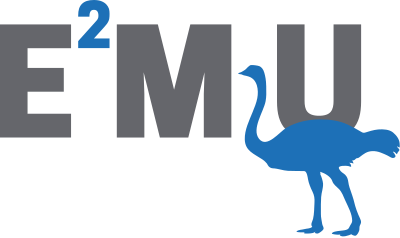Home
G’day. I am a Research Fellow (Level B, continuing) in the Department of Economics at the University of Melbourne and the Lab Manager of the Experimental Economics Laboratory (E²MU).
At E²MU, I oversee laboratory and online experiments. My research examines paternalism, the economics of freedom, and support for public policy through controlled experiments and large-scale surveys, with a methodological focus on experimental design and econometric modeling.
Prior to joining the University of Melbourne, I managed the Cologne Laboratory for Economic Research, was an Oskar Morgenstern Fellow at the Mercatus Center at George Mason University, and visited the Vinson Centre at the University of Buckingham and Pontificia Universidad Javeriana in Bogotá.
As a full-stack developer, I build open-source tools for experimental economics. I am currently developing uproot, a software framework for experiments.
Publications in peer-reviewed journals
- Integrating Machine Behavior into Human Subject Experiments: A User-friendly Toolkit and an Application to Framed Prisoner’s Dilemmas (with Engel, C. & Ockenfels, A.)
Accepted at Experimental Economics · Working paper · GitHub · Interactive experiment builder · Abstract [−] Abstract [+]
Large Language Models (LLMs) have the potential to profoundly transform and enrich experimental economic research. We propose a new software framework, “alter_ego”, which makes it easy to design experiments between LLMs and to integrate LLMs into oTree-based experiments with human subjects. Our toolkit is freely available at github.com/mrpg/ego. To illustrate, we run differently framed prisoner's dilemmas with interacting machines as well as with human-machine interaction. Framing effects in machine-only treatments are strong and similar to those expected from previous human-only experiments, yet less pronounced and qualitatively different if machines interact with human participants.
- Reproducibility in Management Science (by Fišar, M., Greiner, B., Huber, C., Katok, E., Ozkes, A. and the Management Science Reproducibility Collaboration [consortium co-authorship])
Management Science (2023), 70(3):1343-1356 · Published version
- z-Tree unleashed: A novel client-integrating architecture for conducting z-Tree experiments over the Internet (with Duch, M. L. & Lauer, T.)
Journal of Behavioral and Economic Finance (2020) · Published version · Abstract [−] Abstract [+]
We present z-Tree unleashed, a novel approach and set of scripts to aid the implementation of computerized behavioral experiments outside the laboratory. z-Tree unleashed enables subjects to join the experiment using a web portal that requires no software apart from a web browser. Experimenters are likewise enabled to administer their experiments from anywhere in the world. Except for z-Tree itself, z-Tree unleashed is entirely based on free and open-source software. In this paper we give a high-level overview of z-Tree unleashed’s features and benefits and its design. We also show how to set up the server and demonstrate the steps required for conducting an entire experiment. We subsequently explain how to leverage the security and routing features of a virtual private network with z-Tree unleashed, enabling servers to securely run behind routers.
News
Events
📅
📍
